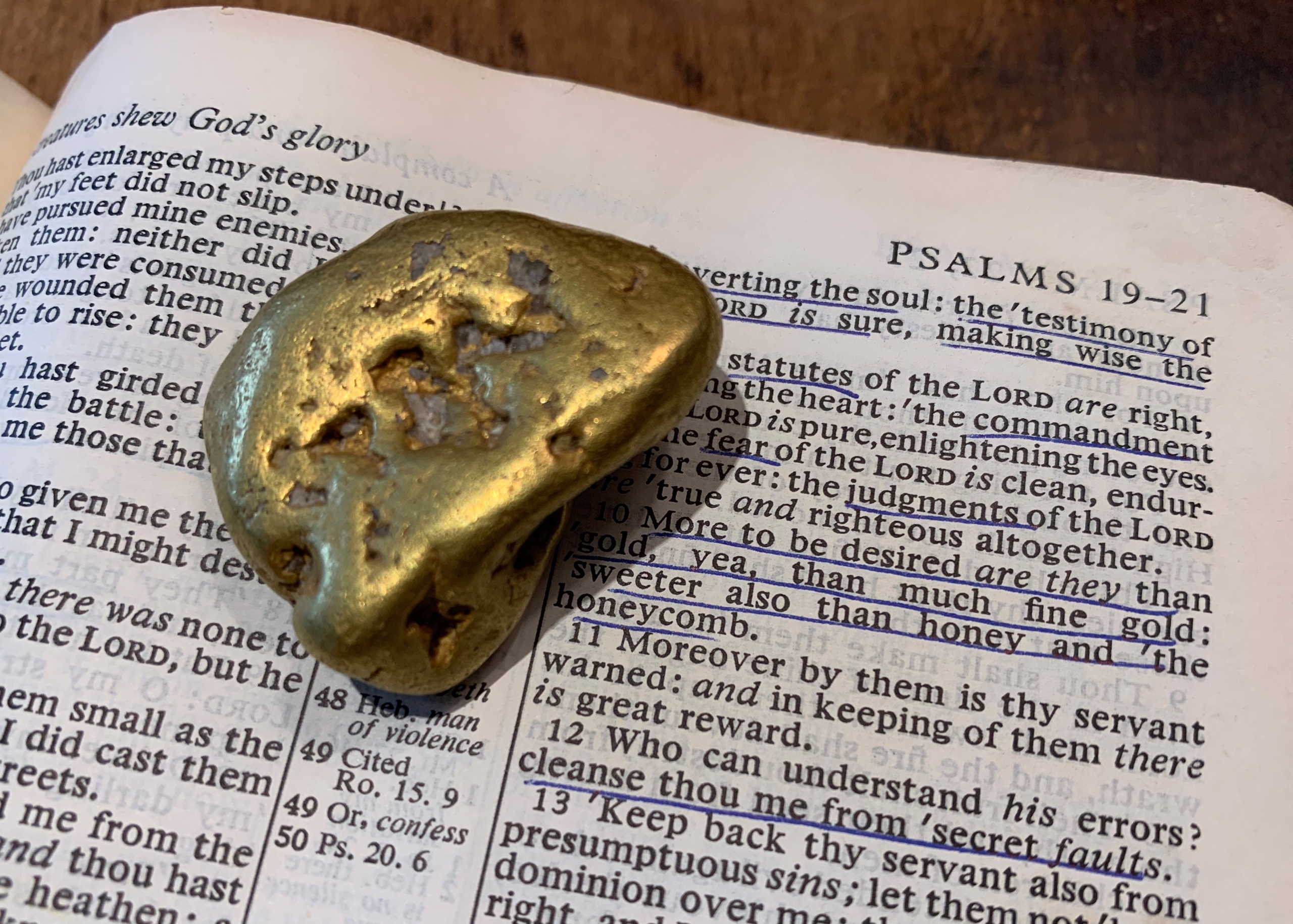Perhaps you’ve heard the story of the young man struggling with discouragement. He turned to his Bible for hope and read the first thing he saw: “So Judas went out and hanged himself.” Matthew 27:5.
That didn’t help! He randomly flipped through the pages. This time he read, “Go, and do likewise.” Luke 10:37.
He tried one more time, this time reading, “What you do, do quickly.” John 13:27.
The poor man obviously took verses out of context in his search for a quick fix! It’s something that we are all guilty of at times. Our desire for a quick answer from God keeps us from giving the Bible the honest study and careful consideration it deserves.
Sometimes God does indeed speak to us directly when we let our Bibles fall open. But more often, He speaks to us as we regularly read the Bible carefully, systematically and contextually.
How Do You Read?
One day lawyer who came to test Jesus with a question about eternal life. Jesus answered with a question for him: “What is written in the law? How do you read it?” Luke 10:26 ESV.
Jesus’ question is an important one. Why? Because the WAY we read the Bible has everything to do with its EFFECT on our lives. God wants Bible study to do more than inform you of truth. He wants Bible study to transform you into His likeness.
Read for Transformation
The prophet Isaiah tells us how to read the Bible, “For precept must be upon precept, precept upon precept, line upon line, line upon line, here a little, there a little.” Isaiah 28:10.

To gain the most from your Bible reading, practice these three principles of Bible study: 1) Read Carefully 2) Read Systematically, 3) Read Contextually.
God wants us to carefully and systematically read the Bible so that we understand it in context. This builds up a solid understanding of Biblical truths and what God is calling us to do. This kind of reading, combined with a thorough heart preparation, leads to personal transformation.
Read Carefully
Often we approach the Bible like one more “to-do” in our fast-paced lives. We read quickly, skimming the surface for a quick promise or truth, then move on. But this kind of reading misses many of the treasures God has for us in His Word.
Instead, we need to read like the gold-miner who carefully surveys the landscape to discover where gold is most likely to be found. He then deliberately removes the loose rock to reach the bedrock where the heavy gold settles. He then painstakingly washes away the lighter sand to reveal the nuggets of gold.
Consider yourself a gold-miner when you read the Bible. Slow down and read carefully. Deliberately think about each verse and its meaning. Painstakingly sift through the debris of your preconceptions and let the Holy Spirit wash them away (Titus 3:5) to reveal the gold of truth. The Bible calls this process meditating. “I will meditate on your precepts, and contemplate Your ways.” Psalms 119:15.
“We cannot obtain wisdom without earnest attention and prayerful study. Some portions of Scripture are indeed too plain to be misunderstood, but there are others whose meaning does not lie on the surface to be seen at a glance. Scripture must be compared with scripture. There must be careful research and prayerful reflection. Such study will be richly repaid. As the miner discovers veins of precious metal concealed beneath the surface of the earth, so will he who perseveringly searches the Word of God as for hid treasure find truths of the greatest value, which are concealed from the view of the careless seeker.” Ellen White. Steps to Christ. p. 90
How can you read more carefully? Begin implementing these habits:
- Pray for God to guide you as you study His Word.
- Underline key words and phrases as you read.
- Look up the meanings for words that especially interest you.
- Use tools like cross references to compare the verse with others. (Next post will be all about tools you can use and how to use them.)
- Think deeply about what you are reading.
- Read multiple times. Try reading each passage seven (7) times and see how much more you learn!
- Write down the insights God gives you in your Bible or notebook.
Read Systematically
Exceptional athletes systematically prepare for competition. They study how best to prepare their body and mind and carefully plan their workouts, sleep, and meals.
“Now they do it to obtain a perishable crown, but we for an imperishable crown.” 1 Corinthians 9:25. God deserves our best efforts in studying the Bible! Let’s give Him our best by studying the Bible in a thoughtful, systematic way. This means reading regularly and with a plan, not randomly skipping around from day to day. To read systematically:
- Choose a book of the Bible and read through it. The book of John is a great place to start. Read each chapter seven times before you move on so that you grasp the full significance of what God is saying.
- Follow a reading plan. Bible.com has a number of excellent plans. You can choose between topical, chronological, Bible in a year plans, and many others.
Read Contextually
Would you ever choose to watch only ten minutes in the middle of a movie? Not likely. It probably wouldn’t make much sense, would it?
Reading just a verse or two of the Bible is similar. It gives limited understanding and does little to transform your life. So if you’re going to read a verse, read the chapter it is in. And if you’re going to read the chapter, read the chapters before and after it. While you’re at it, why not read the whole book? You may not get through it all at once, but keep reading.
There are three types of context to consider:
- Literary Context: Is this a story? Poem? Prophecy? Instructional letter? For example: stories are written literally and should be understood literally, whereas prophecy is primarily written in symbols that need to be interpreted through other passages in the Bible.
- Immediate Context: What do the surrounding verses say? How does what they say impact the meaning of the verse or passage you are reading. Consider Jeremiah 29:11 for example: “For the I know the thoughts I think toward you, says the Lord, thoughts of peace and not of evil, to give you a future and a hope,” takes on much more meaning when we read verse 10, “For thus says the Lord: After seventy years are completed at Babylon, I will visit you and perform My good word toward you, and cause you to return to this place.” God is not just promising a good future in happy times. He is promising restoration to captives stolen away from their homes because of their sins! He can and will restore us when we too wander away.
- Broader Context: What is this book of the Bible about? Who was it addressed to and in what cultural context? For example: Revelation is written in symbols partly to veil its meaning from first century rulers bent on destroying the fledgeling Christian church.
A Rich Reward
Reading the Bible carefully, systematically and contextually takes time and effort. If it seems too difficult, don’t stress. The important thing is that you READ YOUR BIBLE regularly. As you do so, seek to apply the tips and principles outlined here. Add one thing at a time.
You will be richly rewarded as you study God’s Word! When you invest your time and energy in reading the Bible carefully, systematically and contextually, God will speak directly to you through His Word. God will “open your eyes so that you may see wondrous things in His law.” Psalm 119:18 (adapted).
Dig Deeper:
Read the story of Jesus healing the lame man at the pool of Bethesda in John 5:1-15 utilizing the principles outlined in this article. Read it seven times, meditate on it, and read the chapters before and after it. I think you’ll be surprised at what you learn.
Learn something exciting in your study of John 5:1-15? Please share it below!
Note: This devotional is part of a 10 part series on 5 Keys to Enjoying God’s Word. If you have not already, please take time to read the devotionals in the series. How to Turn on God’s Alarm Clock, Finding a Quiet Place Alone with God, Faith – Essential Preparation for Bible Study, A Willing Heart for Bible Study, How to Read the Bible, and Tools for Bible Study, Conversation with God, How to be Transformed by God’s Word, God’s Seven Tools for Remembering, Why God Wants You to Share What You Learn. Also, please see the related video devotionals with Pastor McKenzie.












Leave a Reply
Want to join the discussion?Feel free to contribute!